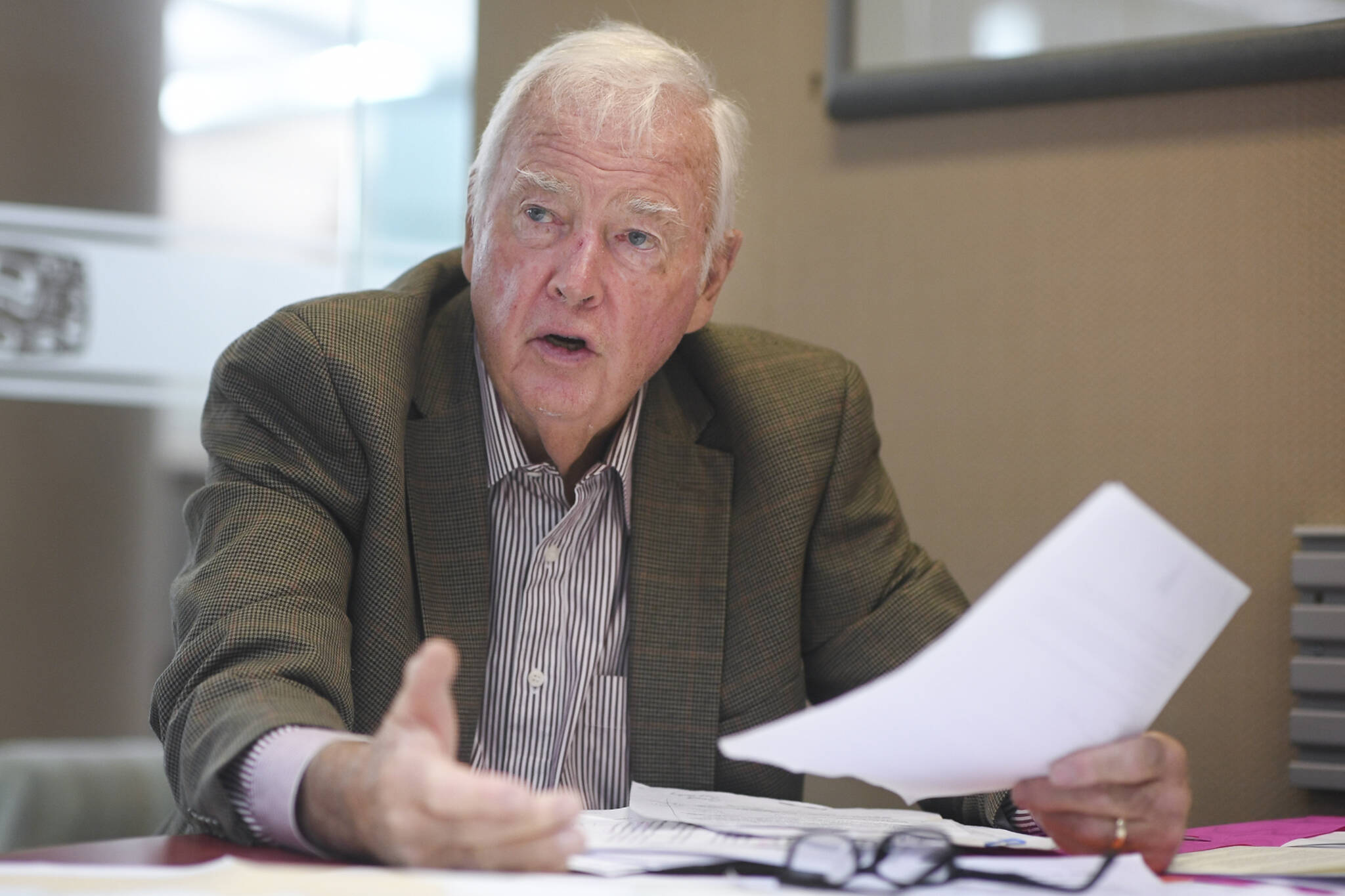By Frank H. Murkowski
As a conservative, I subscribe to the principle to leave alone things in government that are working well. We have enough important things that need to change, like high inflation, the Biden administration’s efforts to close down ANWR, the Ambler Road, and to reimpose the Roadless Rule on the Tongass.
Alaska’s original constitution is one of the things in government that is working well and should be left alone. Article XIII, Section 4 of the Alaska Constitution gives voters the opportunity every 10 years to vote on whether Alaska should hold a constitutional convention. Alaskan voters have wisely turned it down by large margins in 1972, 1982, 1992, 2002, and 2012. We Alaskans should turn it down when the question is on the ballot again this year.
I oppose a constitutional convention because it is not needed. Alaska’s constitutional convention delegates drafted one of the strongest state constitutions in the nation. (As a former governor, I particularly applaud the fact that it provides for a strong executive.) If a need arises to change our constitution, Article 13, Section 1 provides a demonstrably workable mechanism for doing so, including ratification by a public vote. This amendment process has been used 40 times, 28 times successfully, and was how the Alaska Permanent Fund was created.
I oppose a constitutional convention because proponents’ reasons for holding one now would be so different from the reasons for the constitutional convention held in Fairbanks in 1955. In that case the 55 Alaskan delegates had a common purpose — to convince Congress that Alaska was mature enough and would have a strong enough government to be a state. This time, delegates would have significantly different competing interests, many of which would be divisive and not in the State’s best interest.
For example, had the 2020 Oil Tax Initiative passed, it would have been the fourth change in oil taxes in 14 years. In addition, we have had two votes on changing Alaska’s oil tax laws over the last 12 years. This has caused the national and international oil industry or other industries to see Alaska as an unstable place to do business. BP, Shell, and Chevron have all left Alaska. Exxon is no longer participating in the oil patch to the extent it once did.
As a matter of economics, adding to the tax burden of the oil industry will cause it to invest less in Alaska. Less investment means less production. Less production means less revenue to the State.
Nevertheless, those who seek to raise oil and gas taxes will surely try to increase such taxes at a constitutional convention if given the opportunity.
I have the same concern regarding mining. For example, the Stand for Salmon initiative in 2018 would have made the development of mines, roads, wastewater treatment plants, dams, ports, and other infrastructure impossible or cost-prohibitive, particularly in rural Alaska. Such continuous efforts, along with serial litigation against mining and the high cost of doing business in Alaska, have resulted in Alaska having only five metals mines and one coal mine, notwithstanding our abundant mineral resources.
I oppose a constitutional convention because delegates would have plenary power to change the Alaska Constitution in ways that would surely result in unpredictable and unintended consequences. Because the Alaska Constitution will be such an open-ended target, we can count on the infusion of outside special interest funding seeking to influence the election of delegates to promote special interest agendas, like those described above. Although the Stand for Salmon Initiative failed, similar provisions could be included in the constitution if a convention were held.
Changes in the Alaska Constitution will cause what is now settled law to be relitigated, thereby creating years of economic, legal, and regulatory uncertainty in the business community. This in turn will inhibit or prevent investment in Alaska industries. Moreover, principles of constitutional law related to our natural resources important to the entire Alaska public will be up for grabs. These include common use, equal access, sustained yield, access to fisheries, mineral and water rights, and access to navigable waters, will be leaving citizens to wonder which existing rights will be changed or eliminated.
In conclusion, there are many reasons not to vote for a constitutional convention, but my main concern is the potential roadblocks it would cause in maintaining and developing our resource industries, and instability it would cause in our economy.
Frank H. Murkowski is a former U.S. senator (1981-2002) and governor (2002-2006) of Alaska.

